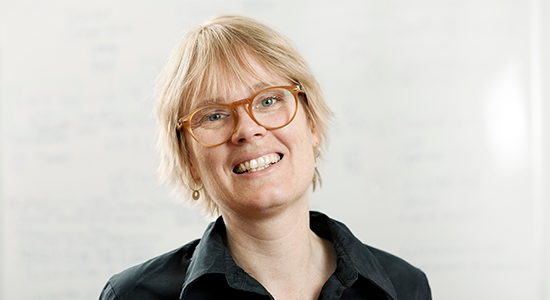Section of Social Medicine
Social medicine is a core discipline within public health. At the Section of Social Medicine, we investigate life course social, psychosocial, psychological, physiological and behavioural determinants of health and function, as well as the socioeconomic consequences of disease and functional decline, with a focus on social inequality.

We address current societal challenges such as: health problems in socially vulnerable population groups and neighbourhoods, functional limitations and multi-morbidity in the ageing population, health consequences of psychosocial stressors in the working environment and private life, inequity in the use of health services, and rehabilitation and consequences of infertility and fertility treatment. Further, we develop and employ a wide variety of epidemiological, psychometric, demographic and qualitative methods in population and patient based cohort studies and in intervention studies. Data sources include comprehensive surveys, clinical and register data, qualitative research interviews and fieldwork, as well as high resolution mobile phone derived data.
Complex interventions based on detailed knowledge about target populations and their needs, are executed to develop co-created solutions to important societal challenges. Furthermore, the section conducts evaluations of the implementation and outcomes of these interventions using a mixed method research approach. The section quantifies and compares the expected health consequences of major policy initiatives and interventions also from a clinical perspective.
Our research identifies potential action points for organized societal efforts limiting further health deterioration and social adversities. We continuously contribute to the development of health promotion, prevention and rehabilitation nationally and internationally. In line with the University’s 2023 strategy, we collaborate closely with a number of international research environments, Danish municipalities, regions and stakeholders to increase the societal impact of our research findings.
The Section of Social Medicine is responsible for pre- and postgraduate level courses in Social Epidemiology, Medical Sociology, Prevention, Health Promotion and Rehabilitation, Clinical Social Medicine and Intervention and Evaluation Methods.

Head of Section
Rikke Lund
Professor
Phone: +45 35 32 79 92
Mobile: +45 24 66 05 35
E-mail: rilu@sund.ku.dk
The Section's research address public health in a life course perspective focusing on social determinants and consequences of disease. Specific health problems in the foetal stage, in childhood and adolescence, in midlife and in old age, and across generations are object of research. The synergies in combining an individual perspective and a population perspective on health and disease are exploited, as well as the the synergies in combining basic etiological analysis with applied rehabilitation and prevention research.
The research is organised within 4 groups. In addition there is a cross sectional group of ph.d.-students, the 'germination box'.
- Reproductive health: With a major focus on consequences of infertility and assisted reproduction, as well as prevention of infertility. (Lone Schmidt)
- Complex Interventions in Public Health (CIPH): Our aim is to address social inequality in health through intervention research. (Sarah Fredsted Villadsen)
- Public Health Database: the database is a linkage of a number of registers comprising data on all persons in Denmark from 1980 onwards.
- Germination box: a unique network for young researchers at the Department of Public Health
- Social Epidemiology research group: Research focused on how social structures, institutions and relationships influence health (Terese Sara Høj Jørgensen)
- Women’s Health and Menopause (WHAM): Through social science, humanities and public health science, we strive to enhance the understanding of women's health, particularly in relation to menopause. (Maria Hybholt)
- Social Networks in Health and Prevention research group: Our goal is to understand how social networks shape, transmit and prevent poor health. We do this by moving beyond the classic biomedical individualistic approach and look at the bi-directional association between social networks and health (Jannie Nielsen & Charlotte Juul Nilsson)
The Section of Social Medicine contributes with courses on the following programs at the Faculty of Health Sciences:
- Medicine
- Bachelor and master of Public Health Science
- Master of Public Health
- Master of Global Health
- Bachelor in Health and Informatics
- PhD in Public Health Science
The section's teaching includes
- Medical sociology and social epidemiology
- Prevention and health promotion
- Social medicine, clinical social medicine and rehabilitation
- Other, including fertility and health, life course gerontology, and intervention
Undergraduate teaching
The Section offers undergraduate courses in the following degree programs.
Medicine (BSc and MSc)
- SEMS (Statistics, Epidemiology, Medical Sociology, 3rd semester, master
- Clinical Social Medicine, 4th semester, master
VKO (elective clinical practice) in gerontology, August
Inequality in Health, 5. semester, master
Public Health Science (BSc and MSc)
- Social medicine, disease prevention and rehabilitation, 1st semester, bachelor
- Second year projects, 4th semester with start in 3rd semester, bachelor
- Health sociology, 5th semester, bachelor
- Intervention and evaluation - introduction to theory and methods
Elective courses
- Life course influences on health and ageing
- Fertility and health
- Gerontology - every day life and health of older people
- Social inequality in health
Public Health (MPH)
- Life Conditions and Health
- Prevention and health promotion
Elective courses
- Prevention and social inequality in health, from 2. semester
Postgraduate teaching
PhD courses:
https://phdcourses.ku.dk/Default.aspx?sitepath=sund&guid=1cf45799-1ac2-4f99-9c09-2ddc1cd5126b
- Advanced Social Epidemiology
- Complex interventions
The Section of Social Medicine supervises research projects in:
- Medicine bachelor's projects and master's theses
- Public Health Science (bachelor’s projects and master’s theses)
- Public Health (master's theses)
- Global Health, master theses
We supervise both projects using qualitative methods and those using quantitative methods (primarily social epidemiology). However, unfortunately we are not always able to meet the demands for supervision, due to a very large supervisory activity within the Section.
See examples of areas within which the section supervises
On this page, you will find an overview of project proposals and internship opportunities that the Department of Public Health offers to bachelor's, master’s, and research year students.
Bodil Marie Holst
Administrative coordinator
Main address:
Oester Farimagsgade 5,
1353 Copenhagen C
Address for visitors:
Gothersgade 160, 2nd and 3rd floor
1123 Copenhagen K
Phone: 35 33 29 78
Staff
| Name | Title | Phone | |
|---|---|---|---|
| Search in Name | Search in Title | Search in Phone | |
| Andersen, Ingelise | Associate Professor Emerita | +4535327662 | |
| Biener, Sigrid Normann | PhD Student | ||
| Bjørner, Jakob | Affiliate Professor | +4535327394 | |
| Blagdon, Michelle Skov | PhD Fellow | ||
| Blohm, Frederikke Sissel | PhD Fellow | +4535329891 | |
| Brasholt, Marie Sørensen | Clinical Associate Professor | +4560880672 | |
| Brønnum-Hansen, Henrik | Emeritus | +4535327974 | |
| Christensen, Ulla | Associate Professor Emerita | +4535327663 | |
| Diderichsen, Finn | Emeritus | ||
| Foverskov, Else | Assistant Professor | +4535328974 | |
| Gadeberg, Anne Kristine | PhD Fellow | +4535332966 | |
| Hansen, Åse Marie | Emerita | +4535327956 | |
| Harper, Sam | Guest Researcher | ||
| Holst, Bodil Marie | Administrative Officer | +4535332978 | |
| Hougaard, Charlotte Ørsted | Data Administrator | +4535337217 | |
| Hybholt, Maria | Associate Professor | +4535320840 | |
| Jørgensen, Terese Sara Høj | Associate Professor | +4535335886 | |
| Koski, Alissa | Guest Researcher | ||
| Labriola, Merete | Professor | +4535333132 | |
| Lund, Rikke | Professor, Head of Section | +4535327992 | |
| Malling, Gritt Marie Hviid | PhD Fellow | +4535327715 | |
| Molbo, Drude | Data Administrator | +4535326736 | |
| Mortensen, Ole Steen | Professor | +4523328431 | |
| Nielsen, Jannie | Associate Professor | +4535331262 | |
| Nilsson, Charlotte Juul | Associate Professor | +4535327122 | |
| Pedersen, Kevin Billesborg | PhD Fellow | +4535335930 | |
| Rossau, Henriette Knold | Postdoc | +4535325179 | |
| Schmidt, Lone | Professor, Emerita | +4535327631 | |
| Toft, Ulla Marie Nørgaard | Clinical Professor | +4529997877 | |
| Villadsen, Sarah Fredsted | Associate Professor - Promotion Programme | +4535327997 | |
| Wulff, Anna Lyngdal | PhD Fellow | +4535320030 |
